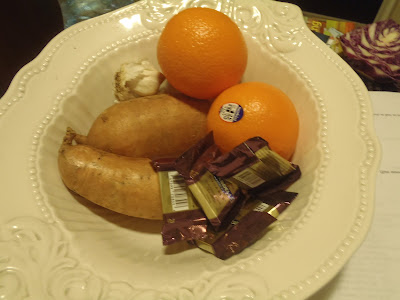1. Shop seasonally and locally. In season items are likely to be less expensive, and local items (from a farmer's market, for example) are usually cheaper and healthier.
2. Use up everything you already have in your fridge and pantry before going out to buy new stuff. When you do buy new stuff, buy what's healthier and on sale. Stuff like canned beans, sauce and rice is healthy and will last a long time.
3. Buy less meat. Meat costs more than fruits, veggies and beans. Treat meat as you would cake - you wouldn't eat a cake every day, and you wouldn't eat more than one slice. Your meat portion size should be the size of your fist.
4. It may take less energy to go to a restaurant, but it costs more than making a meal at home. For $20 you could buy dinner out for one person at a nice restaurant, or a meal for 2-4 at a fast food place, OR, you could get enough groceries to last four days.
5. Plan ahead and shop more frequently so you're wasting less and only buy what you need.
6. Buy in bulk, especially when things are on sale.
7. Grow your own food. Herbs can be grown in the kitchen, there are tomato plants that hang upside down, and other things really aren't very hard to grow.
This is what was in my fruit bowl lately: sweet potatoes, dark chocolate, oranges and garlic. Usually I have a bit more, such as regular potatoes, onions, bell peppers, bananas and apples.

No comments:
Post a Comment